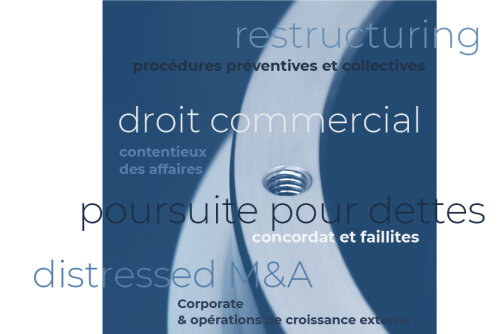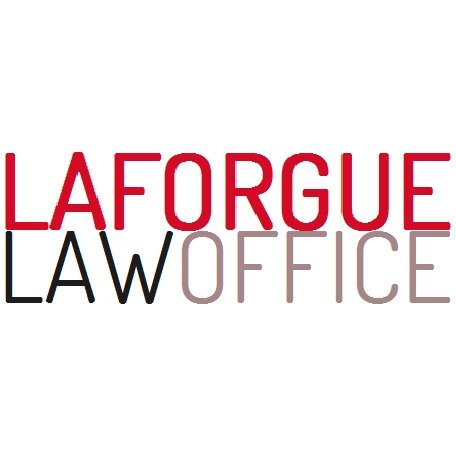Best Bankruptcy Lawyers in France
Share your needs with us, get contacted by law firms.
Free. Takes 2 min.
Or refine your search by selecting a city:
List of the best lawyers in France
About Bankruptcy Law in France
Bankruptcy in France is governed by a series of legal frameworks designed to handle financial insolvency. These laws aim to protect the interests of creditors while offering a fair chance for businesses and individuals to restructure or liquidate their debts. French bankruptcy law places a strong emphasis on restructuring over liquidation, allowing financially distressed businesses a chance to restore their operations. The process is structured under several procedures, including Mandat ad hoc, Conciliation, Sauvegarde (safeguard), Redressement Judiciaire (judicial reorganization), and Liquidation Judiciaire (judicial liquidation), each with its specific mechanisms and conditions.
Why You May Need a Lawyer
Engaging a lawyer can be crucial in navigating the complexities of bankruptcy law in France. Common situations where legal help might be needed include:
- Analyzing financial situations and advising on the most suitable legal pathway.
- Drafting and submitting necessary documentation to court proceedings.
- Negotiating with creditors to reach an amicable arrangement.
- Representing individuals or companies in court during bankruptcy proceedings.
- Advising on asset protection and potential liabilities if a liquidation is inevitable.
Local Laws Overview
French bankruptcy laws emphasize financial reorganization and preservation of companies. Here are some key aspects:
- Mandat ad hoc: A voluntary procedure where a mediator assists in negotiating with creditors. It's non-judicial and remains confidential.
- Conciliation: Similar to Mandat ad hoc but formalized by court approval. It allows renegotiation of debts under court supervision.
- Sauvegarde: Designed for businesses not yet insolvent but facing difficulties. The company may continue its operations while restructuring its debts.
- Redressement Judiciaire: Employed when a company is already insolvent. The aim is restructuring rather than dissolution.
- Liquidation Judiciaire: Applied when reorganization is not possible, leading to the sale of assets to pay creditors.
Frequently Asked Questions
What is the difference between Sauvegarde and Redressement Judiciaire?
Sauvegarde is a proactive measure for businesses in difficulty but not yet insolvent, whereas Redressement Judiciaire is for those already in a state of cessation of payments.
Can individuals file for bankruptcy in France?
Yes, individuals can follow the Procédure de Surendettement, which helps manage personal debts under the supervision of the Banque de France.
What role does a creditor play in French bankruptcy proceedings?
Creditors must file claims within a particular time frame and participate in the restructuring process. Their approval is crucial in consensus-based solutions like Conciliation.
How long does a bankruptcy process take in France?
It varies by procedure. Conciliation lasts around four months, Sauvegarde can take up to 18 months, and Redressement Judiciaire may extend over several years depending on complexity.
Is the bankruptcy filing public?
For judicial procedures like Sauvegarde and Redressement Judiciaire, yes, filings are public. However, Mandat ad hoc remains confidential.
What happens to employees in a company undergoing bankruptcy?
Employees' contracts are protected during proceedings. If redundancies are necessary, legal procedures must be observed to minimize impact.
How does bankruptcy affect a company director personally?
Directors may face disqualification if found guilty of mismanagement. Personal assets are typically not at risk unless personal guarantees were made.
Can a foreign company file for bankruptcy in France?
A foreign company with a business operation or assets in France can be subject to French bankruptcy proceedings.
Are there alternatives to bankruptcy?
Yes, Mandat ad hoc and Conciliation are non-bankruptcy alternatives that can help resolve financial distress outside of court.
What is the role of the Banque de France in cases of personal bankruptcy?
The Banque de France manages and facilitates the debt restructuring process for individuals through the Household Debt Commission.
Additional Resources
Here are some valuable resources if you need legal advice regarding bankruptcy in France:
- Banque de France: Provides guidance on personal over-indebtedness procedures.
- Tribunal de Commerce: Handles commercial bankruptcy cases and offers resources for businesses.
- Legal Aid Services: Organizations offering free or reduced-cost legal advice for qualifying individuals.
- Local Bar Associations: Can recommend qualified attorneys specializing in bankruptcy law.
Next Steps
If you consider filing for bankruptcy or need legal assistance in France, consider the following steps:
- Assess your financial situation to determine the most appropriate procedure.
- Gather all relevant financial documents and records.
- Consult with a lawyer specializing in French bankruptcy law for personalized guidance.
- Contact the Tribunal de Commerce or Banque de France for procedural information and formalities.
- Explore mediation options like Mandat ad hoc or Conciliation before proceeding to judicial routes.
Lawzana helps you find the best lawyers and law firms in France through a curated and pre-screened list of qualified legal professionals. Our platform offers rankings and detailed profiles of attorneys and law firms, allowing you to compare based on practice areas, including Bankruptcy, experience, and client feedback.
Each profile includes a description of the firm's areas of practice, client reviews, team members and partners, year of establishment, spoken languages, office locations, contact information, social media presence, and any published articles or resources. Most firms on our platform speak English and are experienced in both local and international legal matters.
Get a quote from top-rated law firms in France — quickly, securely, and without unnecessary hassle.
Disclaimer:
The information provided on this page is for general informational purposes only and does not constitute legal advice. While we strive to ensure the accuracy and relevance of the content, legal information may change over time, and interpretations of the law can vary. You should always consult with a qualified legal professional for advice specific to your situation.
We disclaim all liability for actions taken or not taken based on the content of this page. If you believe any information is incorrect or outdated, please contact us, and we will review and update it where appropriate.
Browse bankruptcy law firms by city in France
Refine your search by selecting a city.
















